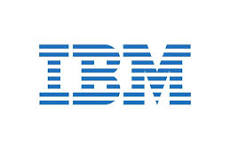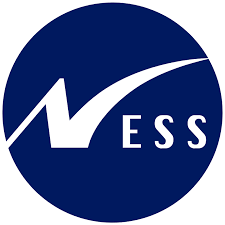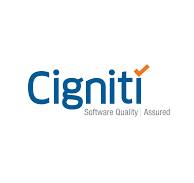Pega Training In Hyderabad
- Flexible Learning
- Affordable Learning
- Hands - On Experience
- Daily Recordings
- Industry - Specific Skills
- One on One Mentorship

Our Provided Services
Pega training in Hyderabad

Comprehensive Curriculum
A well-rounded curriculum covering essential topics and advanced concepts for career success.

Expert Instructors
Learn from industry experts with extensive experience and top credentials.

Practical Training
Hands-on training through projects and case studies for real-world applications.

Flexibility
Adapting to individual learning paces and preferences through flexible course structures.

Certification
Earn a recognized certification to validate your skills and boost your career.

Flexible Scheduling
Flexible class schedules including weekends, evenings, and online options.

Career Guidance and Placement Assistance
Career support including resume building, interview prep, and job placement opportunities.

Practical Experience
Opportunities for hands-on coding and implementation to solidify learning.
Cirruculum
Pega training in Hyderabad
Introduction To BPM
Introduction To PRPC
Pega 7.1 Software Installati?
Operator ID
Creating Application
Creating Rule Set
Ruleset Versions
Creating Users & Portals
DCO
Application Profiler
Application Accelerator
Application Express
Types Of Classes
Creating Abstract Class
Creating Concrete Class
Creating Data Tables
Types Of Properties & Models
Creating Properties
Change The Appearance Of A Property
Create Embedded Properties
Different Shapes Used In Flow & Their Purpose
Create Main Flow/Process Flow
Create A Sub-Flow/Screen Flow
How To Run The Flow Or Creating Work Object
Create Tabbed/Tree Navigation Screen Flow
Call A Sub-Flow From Another Flow Or From Same Flow
Design And Implement Screen Flow
How To Select Screen Flow Types
Create A Section
Create A Section Containing Multiple Layouts
Adding A Section To A Flow Action
Calling Another Section In A Section
Selecting The Layout
Creating Flow Action
Creating Harness
Create A Dynamic Select Control
Repeat Layout (Row/Column)
Conditionally Display A Section
Explain The Purpose Of Different Taps In Activity
Understand Purpose Of Pages & Classes
Different Methods Used In Activities
How To Call Activity From Another Activity
Different Ways To Call Activities
Types Of Activities
Types Of Validations
Rule-Edit-Validation
Rule-Obj-Validation
Constraints
Difference Between Rule-Edit-Validation And Rule-Object-Validation
Difference Between ROV & Constraints
Decision Table
Decision Tree Calling
Decision Rules In Flow
Calling Decision Rules In Expressions
Declare Expressions
Declare Constraints
Declare On Change Declare Pages
Create An Activity With A Precondition And A Transition
Create An Activity To Populate A Dynamic Select
Creating Activity For Calling SOAP Services
Introduction On Routing
To Work List
To Work Basket
Define An SLA
Assigning SLA To Assignment
Testing SLA
Creating Work-Party
Adding Work-Party To Flow
Clipboard
Tracer
Preflight
Brace
PAL
Check-In/Check-Out Functionality
How To Send A Correspondence (E-Mail)
Configuring E-Mail (Inbound/Outbound)
Creating Work Group/Work Basket
Agents
Reports
Migration/Deployment (Import & Export)
Documenting The Application
Connecting To External Database Using Connect-SQL
How To Use Dynamic SQL When Connecting To External DB
Configuring Web Services (SOAP)
Integration Connect & Service SOAP
New Features In Pega 7
Difference Between Versions
PRPC Guardrails
Direct Capture Of Objectives
Project Implementation Methodology
Pega Project Environment Setup
Real-Time Pega Project
Project Demonstration
Expert Evaluation And Feedback
Spark Databox PEGA Certification
Interview Preparation
Mock Interviews
Resume Preparation
Knowledge Sharing With Industry Experts
Counselling To Guide You To A Right Path In PEGA Carrier

What is Pega ?
Pega’s offerings include capabilities for building and managing web-based applications. The Pega Platform allows developers to create web applications that can be accessed through standard web browsers. These applications can range from customer-facing portals to internal business tools.
With Pega’s web development capabilities, you can design user-friendly interfaces, integrate with various data sources and systems, automate workflows, and leverage advanced analytics to deliver personalized experiences for website visitors or users.
Whether it’s a customer self-service portal, an employee intranet, or an online application form, Pega provides tools and frameworks to develop and deploy web-based solutions efficiently and effectively.
Prerequisites of Pega
- Basic Computer Skills: Navigate operating systems and web browsers.
- Understanding of Business Processes: Familiarity with workflows and business rules.
- Knowledge of Programming Concepts: Basic understanding of variables, loops, and conditions.
- Database Fundamentals: Know SQL queries, data modeling, and database design.
- Familiarity with Web Technologies: Basic understanding of HTML, CSS, and JavaScript.
- Pega Training or Certification: Official training or certification can enhance proficiency.
- Domain Knowledge: Industry-specific understanding (e.g., finance, healthcare) can be beneficial.

Who should Learn ?
Business analysts
Business analysts often work closely with stakeholders to gather requirements and design solutions. Learning Pega can help them model business processes, define business rules, and configure applications to meet business needs.
Developers
Developers who want to specialize in building enterprise applications can learn Pega to create scalable, customizable, and maintainable solutions. Pega’s low-code capabilities also make it attractive for developers looking to rapidly build and deploy applications.
System architects
System architects are responsible for designing the architecture of enterprise applications. Learning Pega enables them to design scalable and efficient solutions that align with business requirements and best practices.
Project managers
Project managers involved in software development projects can benefit from understanding Pega to effectively plan, coordinate, and manage projects involving the development or customization of Pega applications.
Quality Asuurance /Tester
Testers can learn Pega to understand the functionality of applications built on the platform and develop test cases to ensure that applications meet quality standards and functional requirements.
CRM/BPM Professionals
Professionals working in customer relationship management (CRM) or business process management (BPM) domains can benefit from learning Pega to leverage its capabilities for automating business processes, managing customer interactions, and improving operational efficiency.
Consultants
Consultants who specialize in advising organizations on digital transformation, process optimization, or customer engagement strategies can enhance their expertise by learning Pega and offering solutions based on the platform.
Job Opportunities
Web Application Developer
This role involves designing, developing, and maintaining web-based applications using the Pega Platform. Responsibilities may include creating user interfaces, integrating with external systems, and optimizing performance for web applications.
Front-End Developer
Front-end developers with Pega skills focus on building user interfaces and client-side functionality for web applications using Pega’s low-code tools. They collaborate with designers and back-end developers to create responsive and visually appealing web interfaces.
UI/UX Designer
UI/UX designers specializing in Pega work on designing user interfaces and user experiences for web applications built on the Pega Platform. They create wireframes, prototypes, and visual designs that enhance usability and engage users effectively.

Website Administrator
Website administrators with Pega expertise are responsible for managing and maintaining Pega-based websites, including content updates, user management, and performance optimization. They ensure the stability, security, and availability of Pega websites for visitors and users.

Web Application Tester
Test engineers with Pega skills focus on testing web applications developed on the Pega Platform to ensure functionality, usability, and performance. They develop test cases, perform testing, and report bugs to ensure the quality and reliability of Pega-based websites.

Web Application Architect
Web application architects specializing in Pega design the overall architecture and technical infrastructure for web applications built on the Pega Platform. They ensure scalability, security, and performance while aligning with business requirements and best practices.
Career Opportunities & Salaries in Pega Course Pega training in Hyderabad
-
Pega Developer
Role: Design, develop, and implement BPM and CRM applications using the Pega platform. Average Salary: $85,000 - $120,000 per year Salary Range: $70,000 - $135,000 per year
-
Pega System Architect
Role: Architect Pega solutions, design system architecture, and ensure alignment with business requirements. Average Salary: $100,000 - $140,000 per year Salary Range: $85,000 - $160,000 per year
-
Pega Business Analyst
Role: Analyze business processes, gather requirements, and translate them into Pega solutions. Average Salary: $80,000 - $110,000 per year Salary Range: $65,000 - $125,000 per year
-
Pega Lead System Architect
Role: Lead the design and implementation of complex Pega solutions, mentor junior architects and developers. Average Salary: $120,000 - $160,000 per year Salary Range: $100,000 - $180,000 per year
-
Pega Consultant
Role: Provide expert advice on Pega implementations, optimize and troubleshoot existing systems. Average Salary: $90,000 - $130,000 per year Salary Range: $75,000 - $145,000 per year
-
Pega Project Manager
Role: Manage Pega projects, coordinate between development teams and stakeholders, ensure timely delivery. Average Salary: $95,000 - $135,000 per year Salary Range: $80,000 - $150,000 per year
-
Pega Solution Architect
Role: Design comprehensive Pega solutions to meet business needs, ensure best practices and scalability. Average Salary: $110,000 - $150,000 per year Salary Range: $95,000 - $170,000 per year
-
Factors Influencing Salaries
Location: Salaries tend to be higher in tech hubs and major metropolitan areas. Experience: Professionals with more experience and advanced certifications command higher salaries. Education and Certification: Advanced degrees and Pega certifications (CSA, CSSA, LSA) can significantly impact earning potential. Industry: Industries like finance, healthcare, and consulting often offer higher salaries for Pega professionalfor skilled professionals. Certifications to Enhance Career Prospects Pega Certified System Architect (CSA) Pega Certified Senior System Architect (CSSA) Pega Certified Lead System Architect (CLSA) Pega Certified Business Architect (PCBA)
Pega training in Hyderabad

Top PEGA Certifications
1.Choose Your Certification Path
- Pega Certified System Architect (CSA): Entry-level certification for those starting with Pega.
- Pega Certified Senior System Architect (CSSA): For experienced developers who have CSA certification.
- Pega Certified Lead System Architect (CLSA): For senior architects who have CSSA certification.
2. Enroll in Training Courses
- Official Pega Training: Enroll in Pega’s official training courses through Pega Academy. These courses are designed to help you prepare for the certification exams.
- For CSA: Pega Platform Foundations, Pega Decisioning Consultant.
- For CSSA: Advanced topics in Pega, complex scenarios and solutions.
- For CLSA: Comprehensive courses covering architecture and advanced Pega features.
3. Complete Training Modules
- Online Courses: Complete the required online courses and modules, which include video lectures, tutorials, and hands-on labs.
- Instructor-Led Training: Some certifications may require or recommend instructor-led training sessions.
4. Practical Experience
- Hands-On Practice: Gain practical experience by working on Pega projects or through Pega-provided hands-on labs and exercises.
- Real-World Applications: Apply your knowledge to real-world scenarios to better understand the platform.
5. Study and Review
- Study Materials: Use study guides, practice exams, and other resources provided by Pega Academy.
- Community Resources: Engage with the Pega community, participate in forums, and review additional materials shared by other Pega professionals.
6. Take the Certification Exam
- Exam Registration: Register for the certification exam through the Pega Certification portal.
- Exam Format: The exams typically consist of multiple-choice questions that test your knowledge and practical skills.
- CSA Exam: Focuses on foundational knowledge of the Pega Platform.
- CSSA Exam: Includes advanced topics and complex scenarios.
- CLSA Exam: Tests in-depth architectural knowledge and problem-solving skills.
7. Pass the Exam
- Scoring: Achieve the passing score required for the certification. The passing score varies depending on the certification level.
- Certification: Upon passing the exam, you will receive your Pega certification, which is valid for a specific period (usually two years).
8. Maintain Certification (if applicable)
- Recertification: Stay updated with Pega’s latest features and updates. Some certifications may require recertification after a certain period.
- Continuing Education: Engage in continuous learning through Pega’s new courses and updates to maintain your skills and certification.
Common Pega Certifications
Pega Certified System Architect (CSA)
- Focus: Fundamentals of Pega application development.
- Training: Pega Platform Foundations.
Pega Certified Senior System Architect (CSSA)
- Focus: Advanced Pega application development and implementation.
- Training: Advanced courses and practical experience.
Pega Certified Lead System Architect (CLSA)
- Focus: Architecture and advanced features of the Pega Platform.
- Training: Comprehensive architecture courses.
Tips for Success
- Regular Practice: Consistently practice using the Pega Platform to gain hands-on experience.
- Join the Community: Engage with the Pega community for support, tips, and additional resources.
- Stay Updated: Keep up with the latest Pega updates and features to ensure your knowledge remains current.

Certification
Pega Training in Hyderabad offers certification programs for developers, architects, analysts, and specialists, validating skills in application design, development, and domain-specific areas like decision management and robotics. Certifications such as CSA, CSSA, and CLSA demonstrate proficiency in Pega technologies, enhancing career prospects and credibility within the Pega ecosystem.
Mode Of Training
MERN Stack Course in Hyderabad
Students Got Placed





What our Students Say about us
Pega training in Hyderabad
Our Other Courses
Pega training in Hyderabad

Prompt Engineering
The Prompt Engineering Course offers essential skills for managing projects efficiently and meeting tight deadlines without sacrificing quality. Gain practical expertise and strategic insights to excel in fast-paced engineering environments.

Digital Marketing
Digital marketing employs online channels like SEO, social media, and email to engage audiences, foster brand awareness, and drive conversions. It optimizes visibility and boosts business growth in the digital sphere.

Full Stack Development
creating websites and applications using HTML, CSS, JavaScript, and frameworks like React. They learn to design interactive sites, work with databases, and optimize performance, preparing for careers in Full stack development.
Pega is a software platform used for building and managing business process management (BPM) and customer relationship management (CRM) applications.
The course typically covers Pega architecture, application development, case management, data modeling, integrations, UI design, and best practices for Pega implementation.
Course durations can vary, but typically range from a few weeks to a few months, depending on whether the program is full-time or part-time.
While prior experience in programming or IT can be helpful, many Pega training courses are designed for beginners and start with the basics.
Students typically receive a course completion certificate from the institute. Some programs also prepare students for Pega certification exams, such as Pega Certified System Architect (CSA)
Many institutes offer both online and in-person options, allowing students to choose the mode of learning that best suits their needs.
Course fees can vary widely based on the institute and the depth of the curriculum. Many institutes offer flexible payment plans or financial aid options.
Yes, most courses include hands-on projects and practical assignments to help students apply what they learn and gain real-world experience.
Students typically have access to instructor support, online forums, and sometimes one-on-one mentorship or office hours to assist with questions and challenges
Many institutes provide job placement assistance, networking opportunities, and connections with industry partners to help graduates find employment in BPM, CRM, or related fields.



